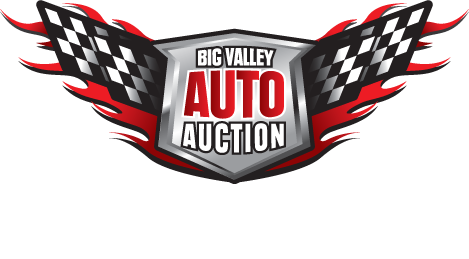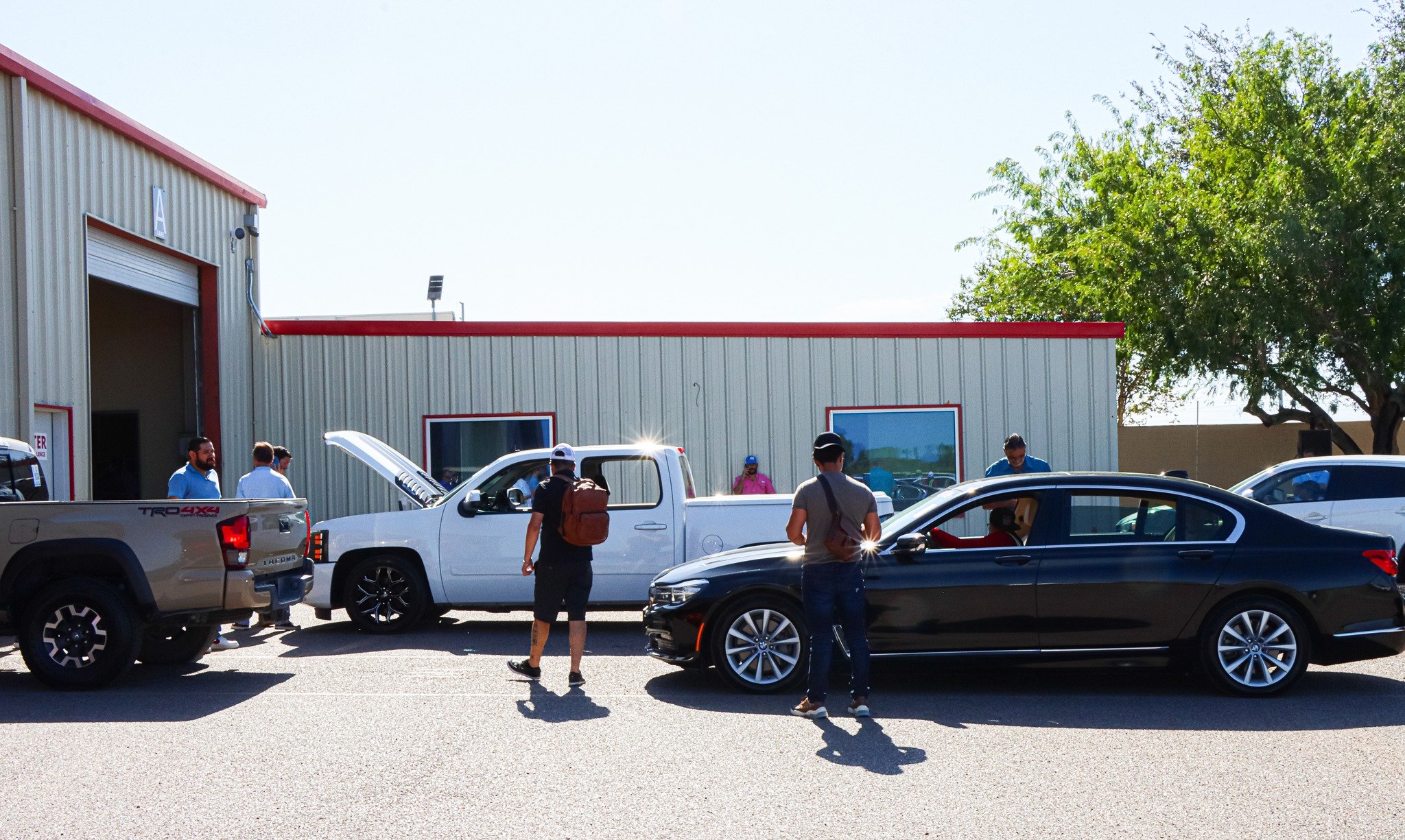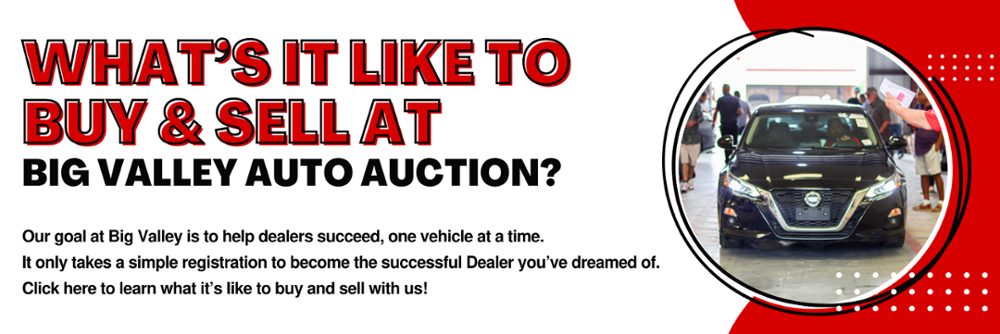Auto Reconditioning | Automotive Recon | Auto Auction Buy and Sell Fees | Auto Auction Light System | Auto Transportation | Auto Inspections | Pros and Cons of Buying at BVAA | Auto Auction Tips | Benefits of Buying at a STX Auto Auction | Pricing | Condition Report
Dealer-Only vs Public Auto Auctions
Certified Content Writer at Big Valley Auto Auction. Victor likes to mix storytelling and humor into his articles.
Have you ever gone to a concert? If you paid for a general admission ticket, you’d be able to enter and watch the show as a regular customer. However, if you paid for the VIP package, you would get front row seats, backstage passes, and a meet-and-greet with the artist. This is a similar situation with public auto auctions and dealer-only auto auctions.
Big Valley Auto Auction has been a dealer-only auto auction since 2008, selling over 500 units weekly to registered dealers. However, we often get confused for a public auto auction, which are auctions that take inventory from registered dealers and non-registered individuals from the public.
In this article, you will learn the differences between dealer-only auto auctions and public auto auctions, including who is allowed to participate, vehicles you’ll find and how they’re priced, and how often each auction holds a sale day. After reading this article, you’ll have the information needed in order to decide which type of auto auction is best for you.
What is the Difference Between Dealer-Only Auto Auctions and Public Auto Auctions?
One common mistake people make is thinking all auto auctions are the same. They aren’t aware that there are 2 types of auctions, which are those open to the public and those specifically for registered dealers. We’ll be covering the 9 differences between both types of auto auctions.
1. Customers
Attendance at both types of auctions will differ, due to who is allowed to enter and participate. For example, dealer-only auto auctions are strictly for licensed dealers only. For dealers participating in a Big Valley Auto Auction, or any NAAA auto auction, dealers must be registered with AuctionACCESS.
Dealers are also not allowed to bring guests that are not registered dealers as well.
Unlike dealer-only auto auctions, public auto auctions are open to anyone, whether or not they have a dealer license. Buyers are allowed to bring their friends and family. For example, Houston Auto Auction has Public Sales where the community can bid on, purchase, or sell vehicles in a friendly and secure environment.
2. Price
Dealers for both types of auctions consider different factors when it comes to pricing their vehicles. Dealer-only vehicle prices are based off of MMR listing, which gives dealers pricing calculations based on recent transactions in the market. Depending on how much similar vehicles have sold for, MMR will list a vehicle’s price based on comparison. Due to this, dealer-only prices could be lower than public auto auction prices.
For example, if a dealer pays $10,000 for a vehicle and they want to sell it for that price, but the same vehicle is listed at $8,000 on MMR, then you’re better off making the sale for $8,000.
Public auto auction prices aren’t based on any specific guidelines. Due to this, prices tend to be higher than dealer-only auto auctions. Prices for public auto auction vehicles are determined by the seller. Usually, factors that play a role in pricing are the type of vehicle, its rarity, and oftentimes a seller’s emotional attachment to it.
An example would be a dropped truck. Based on NAAA guidelines, a dropped truck would be considered a “Red-light” vehicle, due to frame damage and suspension damage, lowering its value at a dealer-only auto auction. However, the same dropped truck sold at a public auto auction could go for a higher price because it “looks cool”. The alterations to the vehicle might not affect the price in a negative way at a public auction.
Public auto auctions do charge to enter, as well as charging to obtain a title and run the vehicle. You can pick your spot if you’re willing to pay more. You can pay with credit card or cash.
3. Inventory
Just like any auto auction, inventory and variety are wide. However, the type of vehicles you’ll find at a dealer-only auction are different from those at a public auto auction. Dealer-only inventory is made of repos and dealer trade-ins. Since vehicles are only accepted by NAAA guidelines, the inventory may be more organized. If you’re a dealership owner, then dealer-only inventory is more likely to have what you’re looking for.
However, since public auto auctions accept vehicles from both dealers and non-dealers, inventory would consist of a more diverse choice of vehicles, including rare vehicles, exotic cars, and specialty cars, such as a 1967 Ford Mustang.
If you’re looking to purchase a vehicle for personal use or for your personal collection, public auto auctions may be your best bet.
4. Sale Days
While sale days for both dealer-only and public auto auctions can be exhilarating, the times you get to experience these days vary. Dealer-only auto auctions tend to run vehicles on a weekly basis, sometimes twice a day. For example, Big Valley Auto Auction has weekly auctions every Thursday at 9:30 AM, followed by a Second Chance sale at 4:00 PM.
Another dealer-only auto auction that has multi-day sales is Texas Lone Star Auto Auction-Austin. Their sale day takes place every Friday at 9:00 AM and New Car Trades every other Thursday at 11:00 AM.
Unlike dealer-only auctions who run weekly, some public auto auctions have sale days once a month. For example, San Antonio Auto Auction has a monthly GSA Fleet Sale open to registered dealers and the general public.
5. Turnaround Time
Both auto auctions have similar policies when it comes to taking your vehicle home. However, the difference is a potential fee you may be charged. Once you finalize your purchase at a dealer-only auto auction, you can take your vehicle home that same day. If you win a vehicle from Big Valley Auto Auction, they offer transportation services that can transport the vehicle to your location for you.
Similar to dealer-only auto auctions, public auto auctions do let you take your vehicle home the same day. However, this is mandatory. Public auto auctions require you take your vehicle home the day of purchase, or else you will be charged a storage fee. You must have your money ready when it comes time to pay.
6. Test Drives
Everyone wants to try something out before they buy it, just to know what they’re paying for. But not every auto auction allows you to test out a vehicle before you buy it. While we can’t speak for all dealer-only auto auctions, Big Valley Auto Auction does allow buyers the opportunity to test drive the vehicles in our lot, at no more than 8 miles per hour. This gives you the chance to visually inspect the vehicle yourself, as well as see how the vehicle runs.
On the other hand, public auto auctions do not give you the chance to test drive vehicles up for auction. In some cases, public auctions won’t even allow you to open a vehicle’s door without the owner being present.
7. Condition Reports
When buying a vehicle from an auto auction, condition reports are important, as they accurately represent the vehicle. They list any damages a vehicle may have and how much recondition work you may have to perform. Dealer-only auctions do offer condition reports for sellers. This will help in catching any visual damage a seller may have missed.
For example, Big Valley Auto Auction offers condition reports consisting of a vehicle's AutoGrade, This is based on a scale of 0-5, with 0 being inoperable and 5 being perfect condition. A vehicle with an AutoGrade of 5 would have no missing, broken, or damaged parts that require replacement, whereas a vehicle graded a 0 is inoperable and only good for parts.
Public auto auctions do not offer condition reports. If the seller wants, they can provide a description of the vehicle. However, it is not mandatory and the seller’s personal description might not be as accurate as an inspection from a condition report department.
8. Inspection Services
Dealer-only auto auctions do provide inspection services. While all auto auctions offer different services, Big Valley Auto Auction offers inspection services that include pre-certification inspection and post-sale inspection.
Public auto auctions do not offer inspection services. All vehicles are sold as-is.
9. Run List
All dealer-only auto auctions have run lists of vehicles that will be sold at their next auction. Auto auctions like Metro Auto Auction of Dallas and Big Valley Auto Auction provide access to a weekly pre-sale list of vehicles being auctioned off that week.
Since public auto auctions only run once a month, they have a catalog of vehicles built up over time. PublicAutoAuctions posts a list of upcoming vehicles that will be available for auction.
Which Type of Auto Auction is Best For Me?
If you’re fine with just experiencing a concert in the crowd, then public auto auctions are probably a good fit for you. However, if you’re more interested in backstage passes and meeting the artist, dealer-only auto auctions may better suit your needs.
Whether you’re new to auto auctions and want to know which one you can participate in, or you’re an experienced customer who might want to try a different route, considering the pros and cons of dealer-only and public auto auctions could help you decide which suits your needs best.
If you're interested in attending a dealer-only auto auction, click the button below to speak with our dealer registration specialist to get you registered at Big Valley Auto Auction.
Not ready to talk? That’s okay! First, learn more about what it’s like to buy and sell at Big Valley Auto Auction by clicking the image below:





